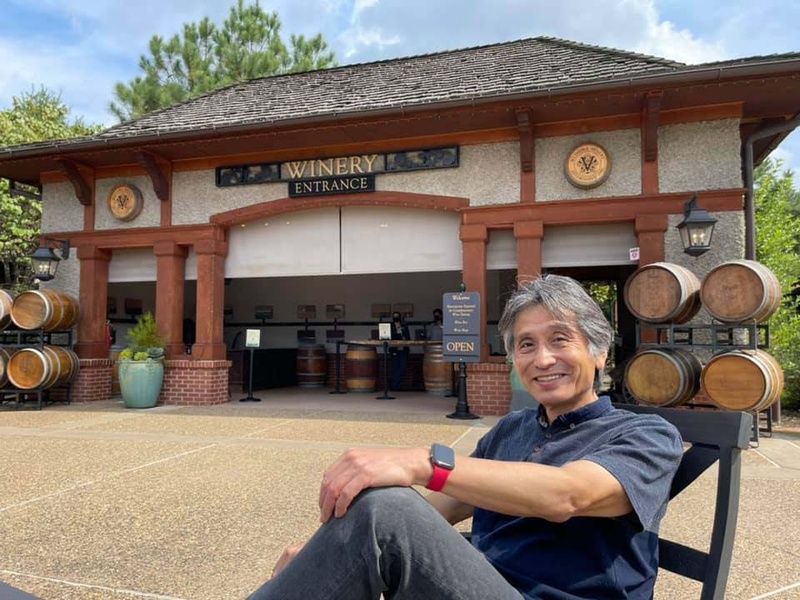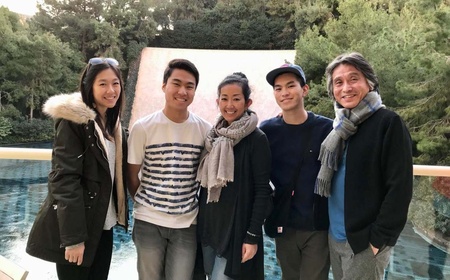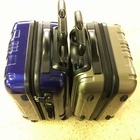After deciding to become a permanent resident of Canada...
Yoshihiko Masuda was stationed in California until 2014 and served as the president of the Japan Business Association (JBA). About five years after he returned to Tokyo from California, Masuda was to serve as a special lecturer at a newly established university in Japan, and I interviewed him to write an introductory article for students. From the very beginning, I had a vivid impression of Masuda. When I requested an interview by email, he responded on the spot, saying, "I'm currently waiting for a transfer at the airport in New York, so I can interview you by phone." I have interviewed many expatriates, but Masuda's unconventional and flexible attitude stood out and I felt that he was "un-expatriate-like."
Later, I found out through social media that Masuda had returned to the US. His new home was North Carolina. I connected with Masuda in North Carolina via Zoom to ask him again about why he had returned to the US, how he viewed the country from the perspective of an expatriate, and where he plans to eventually settle down.
Masuda first came to America in 1979, studying abroad in Boston for a short period of time. Incidentally, when he studied English at Kanda International Language Institute before going abroad, the person sitting behind him was Itsuko, who would later become his wife. After spending three months in Boston, he thought, "I want to come back to America someday," but it took nearly 20 years for that to happen. After graduating from university, he joined a major IT company, but the opportunity to be posted to America did not come easily, and his first overseas posting was in Toronto, Canada in 1990.
"My goal was to set up a subsidiary there. I was stationed in Toronto until 1997. Until then in Japan, I was prepared to work 24 hours a day. But when I went to Canada, I found the local people to be really free-spirited and human. Toronto is a big city, but just 15 minutes away you'll find a valley full of nature, just like Mount Takao (laughs), and it was a great place to live. Canada is also described as a racial mosaic, with people of all kinds of cultures gathering from all over the world, but they each form communities and coexist. That's why it's a comfortable place for foreigners. I liked it so much that I had two children in Toronto. I bought a house, got permanent residency, and wanted to live in Canada permanently."
When the order to return to Japan was given in 1997, Masuda returned to Japan alone, leaving his wife and children behind. However, he found out that his wife was pregnant with their third child, and he felt that giving birth in Canada while raising two young children would be a huge burden, so he ultimately decided to return to Japan with his family.
"America is the place for me"
The first time the Masuda family set foot on American soil was in 2004, when he was transferred to a subsidiary in Silicon Valley. "When I said, 'Let's all go to America together with Dad,' my oldest daughter, who was 10 years old at the time, started crying. My middle son, who was 7 years old, and my youngest son, who was 5 years old, also started crying. I think my wife had mixed feelings. When we first went to Toronto, she had just started to enjoy her work as a copywriter, but she had to give up her career with a heavy heart. Furthermore, when she left Toronto, she had her maple syrup export business on track. After that, she was working in the planning department of a design company and building a new career, but she decided to interrupt that and go to America. Every time she built a new career, I felt sorry for ruining it for my convenience as her husband." Nevertheless, Itsuko chose to move to America with her family.
Afterwards, we asked him about his impressions of Northern California, where he had spent the last five years: "It was a great place to live. The schools were of a high standard, and I'm sure it was difficult for my children, who were elementary school students at the time, at first, but I'm really glad they were able to adapt."
And while Masuda would normally have gone through the process of returning to Japan, he was transferred to another subsidiary in Orange County in 2009, and decided to remain in California. "The weather was nice, the beach was close, and it was a great place with an open, free atmosphere. It was the perfect place for someone like me who loves running and swimming. I was able to live a good life." Even in terms of work, he was influenced by the efficient work of the local employees, and began to feel that "this is the place for me. I want to stay here forever."
However, as is the fate of a company employee, he was ordered to return to Japan in 2014. After a family meeting, he chose to remain in Orange County with his wife and two children, except for his eldest son, who had already returned to Japan to attend high school. His wife, Itsuko, had mastered the Alexander Technique, a mind-body technique, and had even gained Hollywood actors as clients.
Masuda lived alone with his eldest son in Tokyo for five years. Then, in 2020, his father's death became a major turning point. "I never really had a chance to talk to my father, but he told me during his illness, 'I've been living in America for so long, and I've missed my grandchildren. Please take care of my mother, who I'm leaving behind. I want you to rebuild our house in Tokyo into a two-family home and live with us there.'" To fulfill his promise to his father, Masuda rebuilt his family home in Suginami, and with the help of a lawyer, he gave up his US permanent residency, which he had obtained while working there, saying, "I probably won't be returning to America again."
"However, right after the procedure to renounce permanent residency was completed, the company asked me to go to America." Masuda was about to decline because he had to take care of his mother in Japan, but Itsuko, who had returned to Japan and left her two children in America to care for her father, once again encouraged him, saying, "I'll take care of your mother, so you go to America."
And so, in 2021, Masuda returned to North Carolina as a resident employee. "You can't control what happens in reality, but I think that subconsciously I was expressing my desire to return to America at work. My friends who have seen my social media posts say that while I hardly post anything in Japan, I post frequently in America and that my smile is so bright. I haven't noticed it myself, but I think America is where I fit in. But Japan has also become less cramped than before and it's become a lot more comfortable. On the other hand, I feel like there's less room in America than before."
After living in America for a few years as planned, will Masuda end up settling down in Tokyo, or...?
© 2022 Keiko Fukuda








